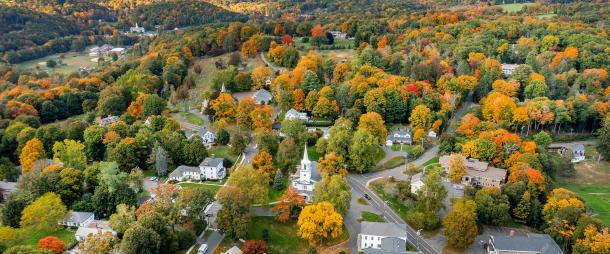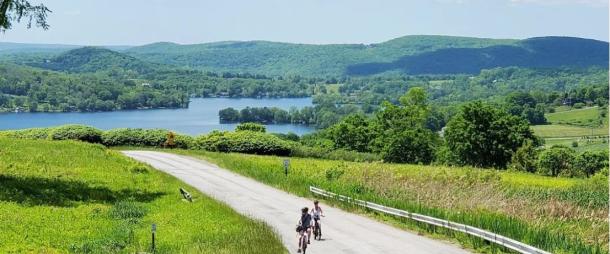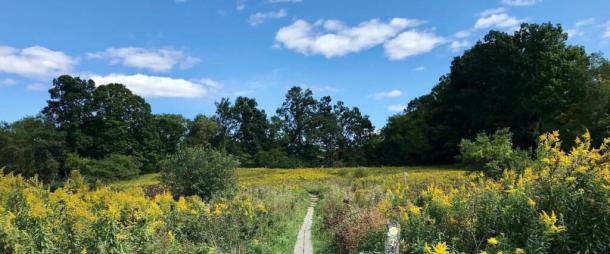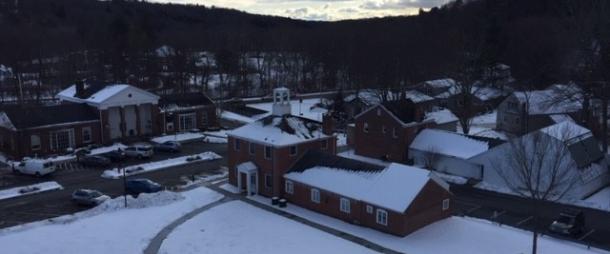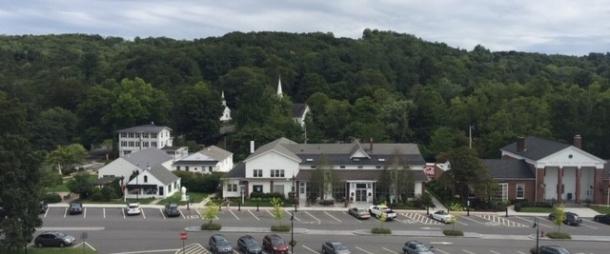Rationale for a Town Housing Commission
The Housing Study Committee (2001) commissioned by Selectmen, the Town Plan of Conservation and Development (2003), and the Town Strategic Planning Process (2004) confirmed the public's desire to provide affordable housing options. The Housing Diversity Committee (2005) recommended a Town Housing Commission be established to "plan for the housing needs of low/moderate income people including single family homes; rental units; assisted living and congregate homes."
Both the 2005 and 2006 Town Budgets include items to support the development of affordable housing. In the past the Town made grants to the Washington Community Housing Trust to create Dodge Farms and Riverwoods Apartments. A combination of public (state and local) and private funds created 26 apartments in the two complexes.
Because the community has set aside funds to promote affordable housing, there should be direct lines of communication and accountability in the use of public funds. The Housing Commission will be accountable to the public through the Board of Selectmen. The Housing Commission will not develop housing nor duplicate the efforts of the Washington Community Housing Trust. It will further the town's housing goals through study, planning, organizing and recommending the expenditures from a soon to be established Affordable Housing Fund.
Affordable Housing Issues
Many Washingtonians are not aware of the provisions of the Affordable Housing Appeals Act of the State Legislature. This Act says in effect, if a community does not have 10% of its housing stock in the 'affordable' range, developers may purchase land and essentially override local zoning laws if they offer 30% of the new units to persons who are financially eligible. 'Affordability' means that persons whose annual income is less than or equal to 80% of the lesser of the state or area median income (adjusted for family size) may not pay more than 30% of their income for all housing expenses. For example, the current Area Median Income for two persons is $77,200. 80% of this is $61,760. 30% spent on all housing costs is $18,528 per year or $1,544 per month.
Under the Affordable Housing Appeals Act (AHAA) a town may receive a 4-year moratorium from the provisions of the Act. The formula for a moratorium used to be granted if the Town achieved a 2% level of affordable units. (Washington has a total of 1764 housing units and is currently at 1.7% affordable). However, the formula has changed to require the Town to accumulate 75 'unit-equivalent points' for its moratorium eligibility. Rental units, family units, elderly units, owned units all have different 'unit-equivalents.' Currently Washington has 31 points, but when the Church Street Apartments and Ellsworth Apartments are qualified, the town will have nearly 60 points. Therefore, Washington remains vulnerable to developments that meet the above provisions.
"How real is the 'threat' of developers 'trumping' local zoning laws?" citizens have asked. Very real! Already local zoning laws have been transcended (allowing a higher density of units) in the case of Dodge Farms, Riverwoods and Church Street Apartments. The Zoning Commission accepted the applications because the developer (Washington Community Housing Trust) could have pursued the Affordable Housing Appeals Act process and no doubt won the court case at a great expense to the Town and the Trust. There will shortly be an application by private developers under the auspices of the AHAA coming before the Zoning Commission. Fortunately for Washington, the developers have been local people with sensitivity to the needs of the neighbors and town as a whole. In other communities, developers sweep in with profit for their primary motive and may disregard community sensitivities to environment and 'rural character.'
The State Department of Economic and Community Development (DECD) oversees housing in the state and has said that many communities have been taken to court by developers under the Affordable Housing Appeals Act. Decisions that are handed down by the courts run 68% to 32% in favor of developers. Under the AHA Act, the burden of the law falls upon towns to prove that a significant public health or safety risk overrides state statutes requiring towns to provide affordable housing.
State law is not the primary reason Washington will continue to pursue housing options for its diverse population. The public at large realizes addressing the needs of all of its citizens is "the right thing to do." As a rural town, this community has historically enjoyed a variety of citizenry. The urge to maintain our 'rural character' includes not only a demand for open space but also a stance that works to provide housing for its 'rural characters.' The creation of a Housing Commission is intended to assist the town in addressing its diverse housing needs.
Richard C. Sears
First Selectman
May 2005

